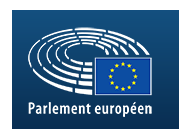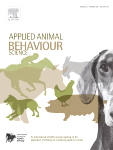Document type Written answer from the European Commission
Authors: question: Aurélia Beigneux (ID), Catherine Griset (ID), Virginie Joron (ID), Annika Bruna (ID) Answer: Ms Kyriakides on behalf of the European Commission
Action must be taken when equine traffickers break EU animal welfare rules. Question:At the beginning of June, several individuals were apprehended during an international fraud inquiry. They are accused of falsifying the passports of leisure horses, which were then sold for their meat. It is well known that there are many directives in Europe establishing very strict animal welfare rules[1]. However, official checks are regrettably scarce. There are too few bodies tasked with checking the origin of equines, the veracity of their passport details, transport conditions, and even slaughtering conditions. Since checks are sporadic and fraudulent practices persist, leisure horses may be surreptitiously sent to slaughter and end up on our plates without anyone being able to intervene. In the light of the above: 1. Is the Commission aware of this trafficking and what action does it intend to take to prevent new health scandals from happening like those which occurred in France[2]? 2. How does it plan to reinforce checks on cattle imports and exports within the EU and at its borders? 3. Does it intend to appoint a European commissioner for animal welfare and protection?
Answer: Regulation (EU) 2016/429 places importance on traceability and surveillance. Identification and registration of horses are part of these concepts. The regulation requires operators to register establishments keeping horses on a permanent or temporary basis and to keep records of the horses kept thereon. Horses must be properly identified and a single lifetime identification document is one of the elements of their identification. At EU level, initiatives like EU Food Fraud Network, Administrative Assistance and Cooperation System, and Commission Knowledge Centre for Food Fraud and Quality address food fraud. Under the Farm to Fork Strategy, the Commission is now strengthening enforcement actions to enable authorities to fight food fraud more effectively through EU coordinated actions, continuous improvement of communications systems between authorities or through research in artificial intelligence analytical tools. The Commission is well aware of horse and horsemeat trafficking based on the information from Member States and has contributed to the Europol’s operation OPSON IX targeting frauds on horses’ passports and meat. Imports of cattle and horses are subject to systematic official controls upon entry into the EU. Those mandatory checks, combined with an efficient IT system of sharing information between the border control posts, ensure a high level of protection in animal health and welfare. All animals must travel within the EU with a health certificate validated by an official veterinarian and random checks on the animals are carried out at the final destination. The portfolio of the Commissioner responsible for animal welfare is ‘Health and Food Safety’ and animal welfare is very high on the Commission’s agenda.






